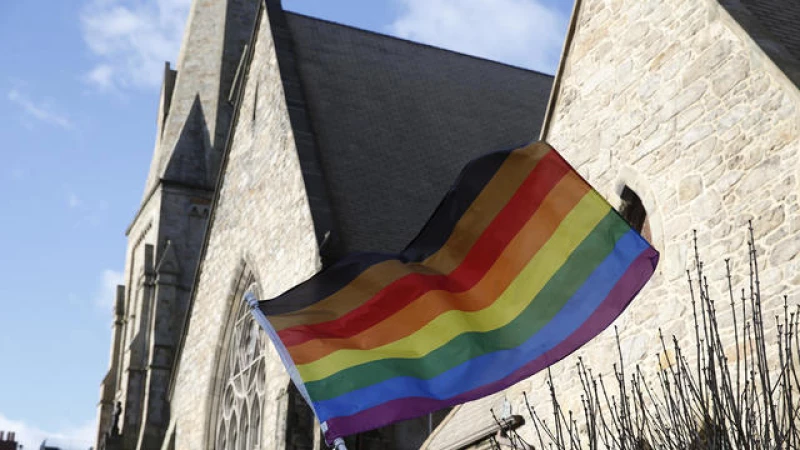United Methodist delegates have overwhelmingly endorsed a constitutional amendment seen by advocates as a way of defusing debates over the role of LGBTQ people in the church by giving rule-making autonomy to each region of the international church.
Delegates voted 586-164 on Thursday for the "regionalization" proposal on the third day of their 11-day General Conference, the legislative body of the United Methodist Church, meeting in Charlotte, North Carolina.
The plan would create multiple regional conferences — one for the United States and others covering areas ranging from the Philippines to Europe to Africa.
Existing regions outside the United States — known as central conferences — already have the flexibility to adapt church rules to their local contexts, but the jurisdictions in the United States do not. This constitutional change would give the U.S. church that flexibility, while defining autonomy more closely for all of the regions.
The vote total easily passed the two-thirds majority required for an amendment to the United Methodist Church's constitution. To become official, however, it will require approval by two-thirds of its annual conferences, or local governing bodies.
If approved, one potential outcome of the adjustment is that it may enable the American church — where there has been a rise in support for the ordination of LGBTQ individuals and for same-sex unions — to authorize such ceremonies. This could be in contrast to international churches that hold more conservative stances on matters of sexuality.
"The significant shift that this proposal introduces is primarily for our fellow members here in the United States, where you would finally be empowered to make decisions that pertain solely to your community, a right that we have had for quite some time," expressed Christine Schneider-Oesch of Switzerland, a member of the committee advocating for the revisions.
This development occurs following the latest General Conference, which witnessed a departure of one-quarter of U.S. congregations from the denomination over the past four years — predominantly conservative churches that reacted to the denomination's inability to enforce regulations against same-sex unions and LGBTQ ordination.
Supporters of the proposal view it as a step towards dismantling a church that some argue is excessively focused on U.S. concerns. However, a Zimbabwean pastor, who opposes the plan, remarked that the specifics of the proposal bear similarities to strategies employed during colonial times to create divisions and maintain control.
While LGBTQ matters were not the central point of discussion on Thursday, they are anticipated to be addressed in the forthcoming days at the General Conference.
"We have members who are part of the LGBTQ community and who have loved ones a part of the community," said Rev. Paul Perez, the lead minister at Detroit Central UMC, in an interview with CBS affiliate WWMT. "So, in many ways, our church has chosen to be who it's going to be, and it has stood on inclusion for a long time. But many of my members are watching closely at what happens at the General Conference because they want the values of our congregation to be reflected in the denomination."
Some proposals would lift the current bans on ordaining LGBTQ people and on same-sex marriage.
"I believe that the values upon which worldwide regionalization is rooted will give renewed strength, life and vitality to the church," said the Rev. Jonathan Ulanday of the Philippines. He said it gives autonomy while maintaining connection to the worldwide denomination, which he noted has been helpful in areas ranging from disaster relief to aiding Filipinos working abroad.
But the Rev. Forbes Matonga of Zimbabwe said the plan actually perpetuates colonial structures by creating multiple regional conferences in Africa along national lines, compared with a single one in the United States. He noted that many African national borders were created arbitrarily by European colonial mapmakers.
"It is this divide and rule," Matonga said. "Create a region for Africans. Creates a platform for Africans so that we speak as a continent and not as small colonies."
The Rev. Ande Emmanuel from Nigeria expressed his perspective on the General Conferences, noting that many of the discussions tend to be "U.S.-centric" and not necessarily relevant to African delegates. He proposed the idea of regionalization, allowing each area of the church to address its own issues. According to him, the goal is not to exert control over one another but to create a mutual platform for building understanding and unity within the church.







